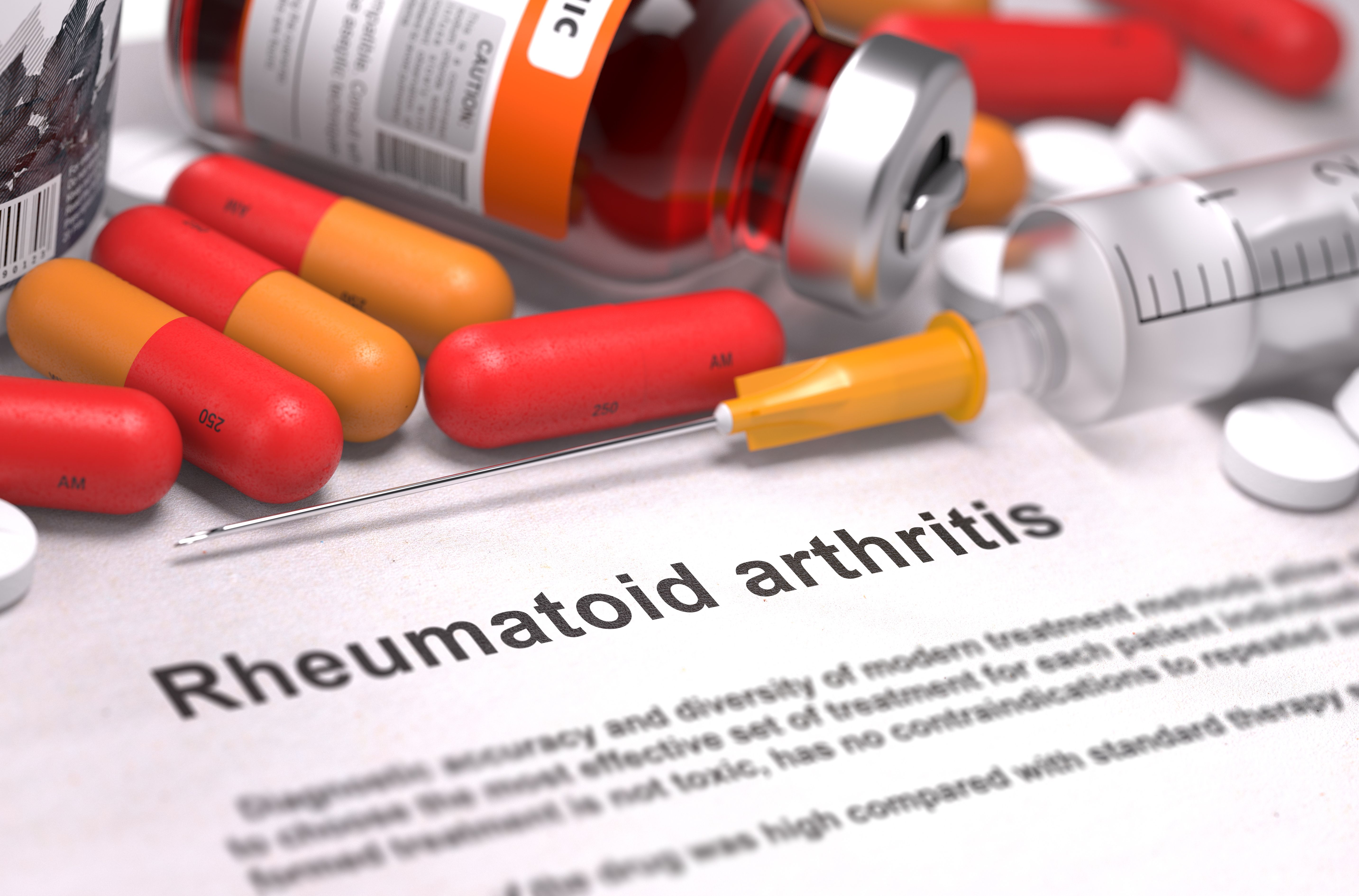- Bone Health
- Immunology
- Hematology
- Respiratory
- Dermatology
- Diabetes
- Gastroenterology
- Neurology
- Oncology
- Ophthalmology
- Rare Disease
- Rheumatology
Patient-Reported Outcomes Similar Between Adalimumab-adbm, Reference Product in VOLTAIRE-RA Study
A summary of research written by Vibeke Strand, MD, clinical professor in division of immunology/rheumatology at Stanford University School of Medicine, gave an overview of patient-reported outcomes (PROs) in the VOLTAIRE-RA trial.
A summary of research written by Vibeke Strand, MD, clinical professor in division of immunology/rheumatology at Stanford University School of Medicine, gave an overview of patient-reported outcomes (PROs) in the VOLTAIRE-RA trial.
Image credit: tashatuvango - stock.adobe.com

The trial found similar efficacy and safety of the adalimumab biosimilar Cyltezo (adalimumab-adbm; Boehringer Ingelheim) and the reference product (Humira) in patients with moderate to severe rheumatoid arthritis (RA). “Similar substantial benefits across a range of patient-reported outcomes” were reported in VOLTAIRE-RA participants randomized to the biosimilar and originator, Strand wrote.
Adalimumab is a monoclonal antibody targeting tumor necrosis factor-α that has been approved in the US since 2002 and Europe since 2003, and adalimumab-adbm was the first biosimilar adalimumab product approved as interchangeable with the reference product by the FDA.
The summary explained that participants who received the biosimilar had similar symptom reduction and side effects as those who received the reference product and then switched to the biosimilar. Participants were randomized to the biosimilar or reference product for the first 24 weeks, at which point half of the patients on the reference product were randomized to switch to the biosimilar. PROs were recorded at 12 and 24 weeks after the start of treatment to assess whether there were differences in the effects of biosimilar and reference product treatment on health-related quality of life.
Participants in the study completed a 36-item questionnaire (SF-36) to assess patient-reported health status across eight domains: physical functioning, physical role limitations, bodily pain, general health perceptions, energy/vitality, social functioning, emotional role limitations, and mental health. These outcomes are evaluated individually and grouped into the physical component summary score and mental component summary score. Patients also completed surveys assessing their perception of their disease activity and health-related quality of life.
At 12 and 24 weeks, the 2 treatment groups showed similar improvements in both physical and mental component summary scores. Mental component scores improved by 70% in the reference product group and 68% in the biosimilar group, physical component score by 59% and 56%, levels of improvement considered clinically important. There were no significant differences in physical component summary scores between groups at baseline, week 12, or week 24. Mental component summary scores were somewhat higher in the reference product group at baseline, but improvements at weeks 12 and 24 were similar between groups.
Improvements across all domains showed no significant differences between groups. Regarding individual domains, the author explained that more than two-thirds of participants reported clinically meaningful improvements in domains such as physical functioning, bodily pain, and vitality, and more than half reported improvements in others such as general health, emotional role limitations, and social functioning.
According to the summary, the VOLTAIRE-RA trial found people with rheumatoid arthritis receiving either the biosimilar adalimumab-adbm or the reference product experienced similar improvements in symptoms and similar levels of side effects, and these effects “translated into highly similar clinically meaningful improvements in experience and perception.” The author added that “a high proportion” of participants in the trial reported greater improvements compared to a reference US population similar in age and sex, and this finding “represents attainment of a treatment goal that was difficult to achieve in early trials of non-biologic treatments for rheumatoid arthritis.”
Reference
Strand V. Summary of research: effects of adalimumab-adbm versus adalimumab reference product on patient-reported outcomes in rheumatoid arthritis: results from VOLTAIRE-RA. Rheumatol Ther. Published online August 9, 2024. doi: 10.1007/s40744-024-00691-0
Newsletter
Where clinical, regulatory, and economic perspectives converge—sign up for Center for Biosimilars® emails to get expert insights on emerging treatment paradigms, biosimilar policy, and real-world outcomes that shape patient care.
